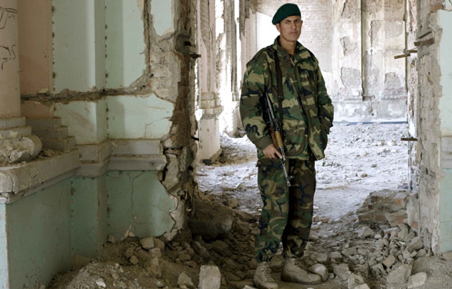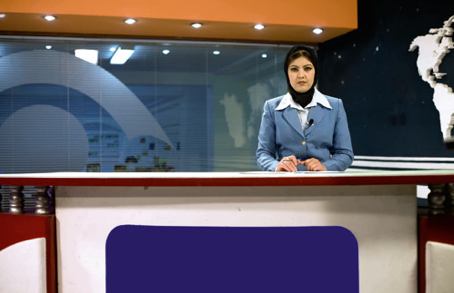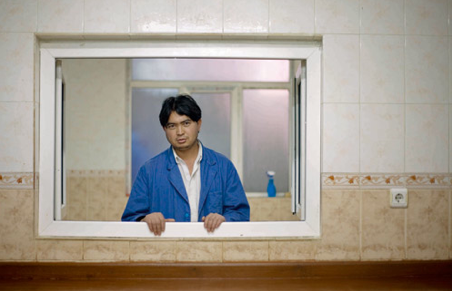





1. Najaf Waheedi, 32, Afghan Army
“I feel that I am inadequate, powerless and angry when US troops are around. They take control of everything and set their own rules which annoys me. They should start to negotiate more and treat us like colleagues. I do understand the risks they face but as they say ‘when in Rome, do as the Romans’. It’s the other way round in this case.”
2. Abdul Ali, 51, salesman
“Americans have brought corruption to my city. They are pouring money like water into Afghanistan rather than investing it wisely - especially American aid workers. Aid money should be spent on funding Afghan schools and hospitals, not on Westerners’ five-star-hotel bills.”
3. Zakia Hussain, 23, beautician
“My Afghan sisters were robbed of beauty during the harsh years of the Taliban regime. Teenage girls like me were suppressed and forced to wear burqas which made us look like blue ghosts, but now I’ve thrown off the burqa. I was trained at the Kabul Beauty School built and run by American aid workers. Now I have my own beauty salon and also train others so they can have a career like me. This all happened after Americans came to my country.”
4. Habiba, 31, newscaster
“The US has made my life even harder. They have failed to fulfill their promises, and now they’ve appointed the new warlords the Northern Alliance who are worse than the Taliban. The current situation is almost as if Taliban were still running the country. Afghan woman have always faced security risks and I face danger every day but I’m not giving up on my job.”
5. Ahmed Shah, 36, catering
“I got this job when Americans invaded Kabul in early 2002. My manager who I used to work with reopened his catering business, so in way it’s the Westerners who brought peace to the city and I got my job back. Now I work six days a week and the best part so far has been that I’ve learnt to cook some European dishes like pasta, pizza and burgers and some Indian food.”
6. Moona Hussaini, 35, TV director and presenter
“It feels great that I can be of use in a field that’s been my dream since I was a young kid. The American media has been a huge inspiration to me. On the other hand though, I have these questions that people need to re-think: how many troops are here; for how much longer; the cost; the exit strategy; and how the US will know when it’s time to get out of Afghanistan. There are no answers to these questions.”
(via musaafer)
Notes
 9463232000 liked this
9463232000 liked this qupritsuvwix reblogged this from watanafghanistan
 humanityisatlost reblogged this from watanafghanistan
humanityisatlost reblogged this from watanafghanistan  humanityisatlost liked this
humanityisatlost liked this  moonlightsk liked this
moonlightsk liked this aesthethical liked this
amanoesque-blog liked this
25hundredhours liked this
sealiiiii reblogged this from watanafghanistan
sagiwal-blog liked this
building-blocks-today liked this
places-i-cant-reach liked this
arrogantwerpen liked this
ah-nosa liked this
 postcolonialprincess liked this
postcolonialprincess liked this dndmcgee liked this
schadelang reblogged this from afghanmenace
waveofeuphoriaaa liked this
counterfeit-anarchy reblogged this from hadleyspazzy
cardboard-daisies liked this
actipissed reblogged this from afghanmenace
 acautiouscat liked this
acautiouscat liked this shardsofthehourglass reblogged this from fallenpeach
 piirrellas reblogged this from disabilityandthearts
piirrellas reblogged this from disabilityandthearts jintellext liked this
 dysfunctionalmoments reblogged this from fallenpeach
dysfunctionalmoments reblogged this from fallenpeach powerofastory liked this
 hadleyspazzy reblogged this from afghanmenace
hadleyspazzy reblogged this from afghanmenace  hadleyspazzy liked this
hadleyspazzy liked this disabilityandthearts reblogged this from afghanmenace
disabilityandthearts liked this
 afghanmenace reblogged this from fallenpeach
afghanmenace reblogged this from fallenpeach